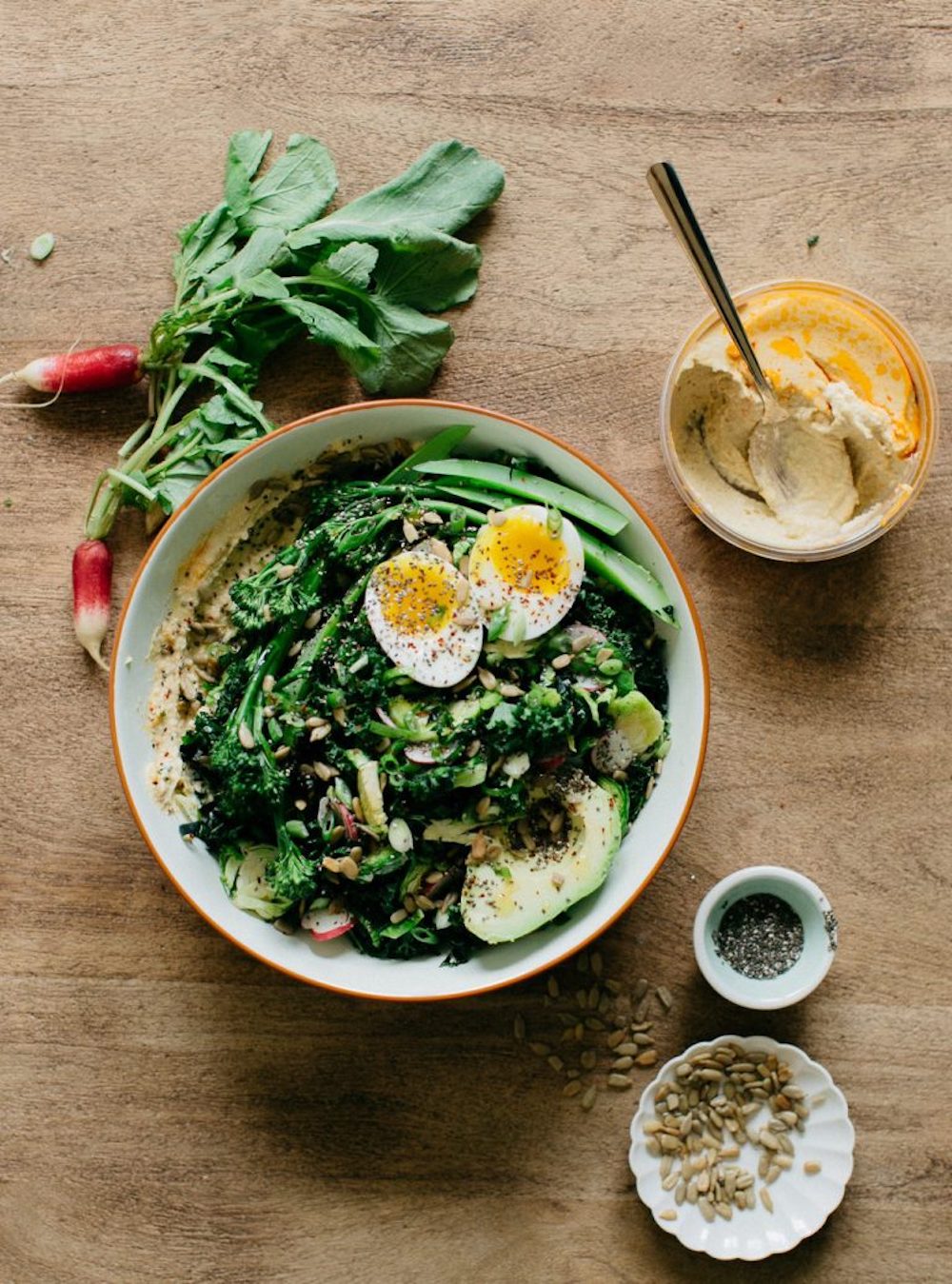Is it just me, or has it totally been the year of the keto diet? Instagram, celebrity interviews, and health podcasts are bursting with claims of the weight loss and brain-boosting benefits associated with a ketogenic diet, and even though I’ve been skeptical of this extreme-sounding way of eating in the past, a few months ago, I decided it was time to saddle up and do some research with an open mind. Here’s what I’ve learned about what is the keto diet based on books, articles, interviews, and studies I’ve read.
I’ve done my best to break it down for you in normal, non-medical language because I’m not a doctor either so that’s what I need to understand it myself. Read on for the questions that I had about keto, and the answers I’ve found.
First things first: what is a keto diet? In a nutshell, it’s a very low-carb, moderate protein, high-fat diet that can be a surprisingly effective way to lose weight.
However, it’s not without controversy (scroll on for that.) Generally, you’d consume only 10% of total calories per day (about 20 grams) from carbs, 20% from protein, and 70% from fats.

Why cut carbs?
The goal of the keto diet is to put your body into a metabolic state called ketosis. Here’s how it happens: Carbs are fuel for our bodies, so when we drastically decrease them like on a keto diet, our body has to turn to other sources of fuel for energy. In the absence of carbs (which turn to glucose in the body), our brain and nervous system turn to ketone bodies as their fuel source. When we eat a diet that’s mostly fat, our body produces more ketones and puts us into “ketosis.”
How does eating fat help us lose fat?
Being in a state of ketosis affects hormones in our bodies (namely insulin and glucagon) that shift our bodies from storing fat to burning fat as our primary source of fuel. Being in this state makes it easy for your body to access fat stores to burn them off.
Besides weight loss, what are the other benefits of the keto diet?
One weird fact that I learned is that “ketosis” is also the state that our bodies are in when we fast (ie. don’t eat any food.) Since fasting is unsustainable for a long period of time (or for more than 3 hours in my case, haha) the keto diet is a way to put your body into this state for an indefinite period of time. In addition to losing weight, supporters claim that ketosis results in less hunger throughout the day and a steady supply of energy that keepings you alert and focused. Additionally, the keto diet has long been used to treat several medical conditions – you can read more about them here.
(Also, here’s the recipe for my favorite slow-cooked salmon pictured above.)
So what do you actually eat on a keto diet?
First, here’s what you avoid: all sugary and starchy foods. Bread, pasta, potatoes, desserts, snack foods, grains, sweet sauces, and most fruits are pretty much off limits. This will feel restrictive to many people, but the diet does involve a lot of delicious options.
Here’s what you can eat: eggs, nonstarchy vegetables, fish, lots of healthy fats like olive oil and avocados, and meat. High-fat dairy is encouraged as long it’s low in sugar, a small amount of berries is okay, and even the occasional glass of wine is approved.
Can a vegetarian be on the keto diet?
Before my research, I would have guessed no on this one, but turns out I was totally wrong! Keto is a high-fat diet, not a high-protein diet, so it is possible to do well on keto as a vegetarian. Since I personally don’t love to consume large amounts of animal proteins in my daily diet, I can’t wait to read this book out later this month that’s all about a mostly plant-based way of doing keto.
What are the downsides to a keto diet?
Here’s where the controversy starts, and a quick google search will reveal that a lot of people feel strongly against the keto diet. Based on my own research, it seems safe for most people who are being conscious of consuming enough nutrients for their lifestyle, but here are some potential negatives:
–Our body relies on carbohydrates as its main energy source for intense exercise, so if you’re a fitness fanatic, you’ll likely have to work some level of carbs into your diet in order to sustain your performance.
–Just eating high fat won’t cause weight loss – you have to actually be in this state of ketosis for it to really work, and different people can tolerate different maximum amounts of carbs for ketosis. The best way to find out if you’re in a state of ketosis is to use urine test strips and monitor frequently.
–For the first few days of this diet, many people report what’s become known as “keto flu” – tiredness, headaches, and digestive symptoms as their bodies transition from using carbs to fat as energy. Usually, the symptoms subside after a few days, which is about the same time that they start to notice weight loss.
–The restrictive factor can make it a non-starter for many people who love their carbs way too much to give them up for any amount of time. The diet may be difficult to maintain in the long run, making it more likely that you could gain back any lost weight.
–Recent findings show that there could be a link between the keto diet and Type 2 diabetes.
My final verdict on the keto diet?
It’s an effective way for some people to lose weight, and the links between a high fat diet and improved brain function are fascinating. I’d try it for a short amount of time, and have definitely been trying to include fewer carbs and more healthy fats into my day-to-day diet. However, I’m not ready to give up healthy whole food carbs just yet – for me, sweet potatoes and apples (and ice cream) are an integral part of a healthy, balanced diet. I don’t want to be on a restrictive eating plan that steals any of my joy from eating great food and going to restaurants with friends and family. However, if I needed to lose a few pounds in a short amount of time, ketosis would be a diet that I think could be pretty easily sustained for a couple weeks, and I love that it doesn’t involve any sort of extreme deprivation.
What do you guys think of the keto diet? Have you tried it?










